The rapid growth of smart TVs has led to a fierce competition between software platforms, with Samsung Tizen and Google’s Android TV App emerging as two of the most popular options in the market. Samsung’s Tizen has been gaining traction in recent years, while Android TV App continues to dominate the market with its extensive ecosystem of apps and services.
In this comparative guide, we will explore the differences and similarities between Samsung Tizen and Android TV App. We will compare the user interface, app availability, and overall user experience of both platforms. So, let’s get started!
What Is Samsung Tizen TV?
Samsung Tizen is a Linux-based operating system developed by Samsung Electronics in collaboration with the Linux Foundation. Initially, Tizen was envisioned as an open-source platform for mobile devices to compete with Android and iOS, but it eventually expanded to other devices such as smart TVs, smartwatches, and home appliances.
The history of Samsung Tizen TV App can be traced back to 2014 when Samsung announced the first Tizen-powered smart TV. This was a significant milestone for Tizen as it marked the platform’s expansion beyond mobile devices. Since then, Samsung has continued to invest in Tizen TV, expanding its ecosystem of apps and services and improving the user experience.
What Is Android TV?
Android TV App is an operating system developed by Google for smart TVs and digital media players. It is a version of the Android operating system that has been optimized for large screens and remote control use.
The history of Android TV App can be traced back to 2010 when Google launched Google TV, a platform that integrated Google’s search engine, web browsing, and other features with television programming. Google TV struggled to gain traction, and in 2014, Google introduced Android TV App as a replacement. Android TV App was designed to provide a simpler and more intuitive user experience while still offering access to a wide range of apps and services.
Also read: Samsung Tizen App & OS: All You Need to Know
Samsung Tizen TV Vs Android TV: A Comparative Overview
1. Samsung Tizen TV Vs Android TV: Software & Apps
When it comes to distinguishing between Android TV and Samsung Tizen TV, their software and apps are two of the most significant factors. If you’re someone who prefers watching content from the Google Play Store app and other platforms like Netflix, Amazon Prime Video, and Disney+, then Android TV might be the better choice for you, since it offers access to over 700 million shows and movies. Additionally, Android TV allows you to watch Apple TV+ content as well.
The Samsung Tizen TV App ecosystem, on the other hand, includes a wide range of apps, including popular streaming apps such as Netflix, Amazon Prime Video, Hulu, and YouTube. It also supports Samsung’s Smart Hub, which provides access to a wide range of apps, games, and other content.
2. Samsung Tizen TV Vs Android TV: UI
The user interface of a streaming platform can have a significant impact on the user experience, engagement, and ease of access. Android TV and Samsung Tizen TV have notably different UI designs. Android TV, for instance, boasts a clean and straightforward interface that’s easy to navigate. Its menu includes simple options like Search, Home, Discover, and Apps.
The content, whether it be apps, shows, or movies, is arranged in streamlined rows with the most popular and recommended content at the top. You can discover content tailored to your preferences in the discover tab and receive personalized recommendations for various apps, shows, and movies. Additionally, you can easily customize the Android TV home screen with just a few button clicks.
The Tizen UI is specifically designed to offer users a seamless and intuitive experience when using their TV. The UI is customizable and provides easy access to various features and apps. One of the most prominent features of the Tizen UI is the Smart Hub. The Smart Hub provides a one-stop-shop for users to access all their favorite apps, streaming services, and live TV channels. The Smart Hub is divided into different categories such as Recommended, Apps, Games, and Live TV, making it easy for users to find the content they want quickly.
It also offers users the ability to customize the home screen. Users can pin their favorite apps or streaming services to the home screen for easy access. The UI also offers users the ability to customize the wallpaper to their liking, which adds a personal touch to their TV.
3. Samsung Tizen TV Vs Android TV: Voice Control
Both Android TV and Samsung Tizen TV offer voice control features, but they differ in terms of functionality and integration with virtual assistants.
Android TV is integrated with Google Assistant, which provides a more comprehensive and AI-powered voice control experience. Users can use Google Assistant to control their TV, search for content, get answers to questions, and even control other smart devices in their home. With Google Assistant, users can perform tasks such as adjusting the volume, launching apps, and searching for content using voice commands. Additionally, Google Assistant can be used to control other smart home devices such as lights, thermostats, and security cameras, making it a powerful tool for home automation.
Samsung Tizen TV, on the other hand, is integrated with Samsung’s Bixby voice assistant. Bixby allows users to control their TV using voice commands, search for content, and access apps. However, Bixby’s functionality is limited compared to Google Assistant, and it doesn’t offer the same level of integration with other smart home devices. Despite this, Samsung has made efforts to improve Bixby’s functionality and integration with other devices, such as its Galaxy smartphones and other Samsung appliances.
Both Android TV and Samsung Tizen TV offer similar voice control features, such as the ability to change channels, search for content, and adjust settings using voice commands. However, the level of integration with virtual assistants is where the main differences lie. Google Assistant is more advanced and offers a wider range of functionality, making it a more attractive option for those looking for a comprehensive voice control experience.
Another factor to consider when comparing voice control in Android TV and Samsung Tizen TV is the quality of the microphone. The quality of the microphone can affect the accuracy and responsiveness of the voice control feature. In this regard, Samsung Tizen TV has an advantage, as Samsung TVs typically have higher-quality microphones compared to other brands.

4. Samsung Tizen TV Vs Android TV: Search & Navigation
Search and navigation are crucial features in smart TVs, allowing users to find and access content easily. Both Android TV and Samsung Tizen TV offer competitive search and navigation features, but they differ in terms of functionality.
Android TV’s search and navigation feature is integrated with Google Assistant, making it highly advanced and intuitive. Users can use voice search to find content quickly, and the system can even understand natural language queries. For example, a user can ask Google Assistant to “find action movies from the 90s” and the system will display a list of relevant results. Additionally, Android TV offers a universal search function that allows users to search for content across different apps and services.
Samsung Tizen TV’s search and navigation feature is integrated with Samsung’s Smart Hub, which provides users with easy access to apps and services. The Smart Hub is divided into different categories, such as Recommended, Apps, and Live TV, making it easy for users to find the content they want quickly. Additionally, Samsung Tizen TV offers a universal search function that allows users to search for content across different apps and services.
While both systems offer voice search, universal search, and customizable home screens, Android TV’s integration with Google Assistant gives it an advantage in terms of advanced search capabilities and natural language queries.
5. Samsung Tizen TV Vs Android TV: Market & Growth Scope
As stated in the recent market reports, the global Android TV market is poised to grow significantly in the coming years. Specifically, the market is expected to reach a value of US $231 billion by 2026, with a projected compound annual growth rate of 20% through that period.
With increasing demand across commercial, industrial, and residential sectors, the Android TV ecosystem is becoming an attractive option for streaming market players looking to take advantage of its growth potential. Additionally, the fact that Android TV supports both Android and Apple TV+ content implies that it has the ability to target users from both ecosystems, making it an even more attractive choice for streaming companies.
On the other hand, With a share of 19.6% in terms of sales volume in the global market in 2022, Samsung was the leading smart TV vendor, according to a report by Statista. Samsung Tizen TV App was the most widely used smart TV operating system in the world, with a market share of 12.5%. The report also stated that Samsung’s smart TV market share had increased by 14.6% from the previous year, indicating strong growth and adoption of the platform.
In terms of market growth, the global smart TV market is expected to continue to grow in the coming years. With over 190 million users across more than 190 countries, Samsung Tizen platform remains at the forefront of leading streaming businesses.
Global sales of Tizen-powered devices surpassed 300 million units in the last five years, and Samsung has been named the number one global smart TV manufacturer for the past 15 years, with all Samsung smart TVs based on Tizen OS since 2015. Leading streaming businesses are increasingly utilizing this smart TV platform, making it a lucrative business opportunity for entrepreneurs.
The Bottom Line
The debate between Android TV and Samsung Tizen TV is ever growing among viewers and streaming market players alike, as both offer unique advantages and perks. As a streaming market player, you have the option to choose one or both to expand your reach, scale your business, and increase profitability. But to start with, you need a reliable, high quality and simple-to-use platform to launch your own branded Android or Samsung Tizen TV app.
Muvi One, an all-in-one OTT platform provider, can help you launch your own branded Android and Samsung Tizen TV app without writing a single line of code. Moreover, Muvi One supports over 16 environments, including Android TV, Fire TV, Roku, Apple TV, and LG TV, among others. Sign up for a 14-day free trial today to launch your own branded smart TV app (no credit card required).

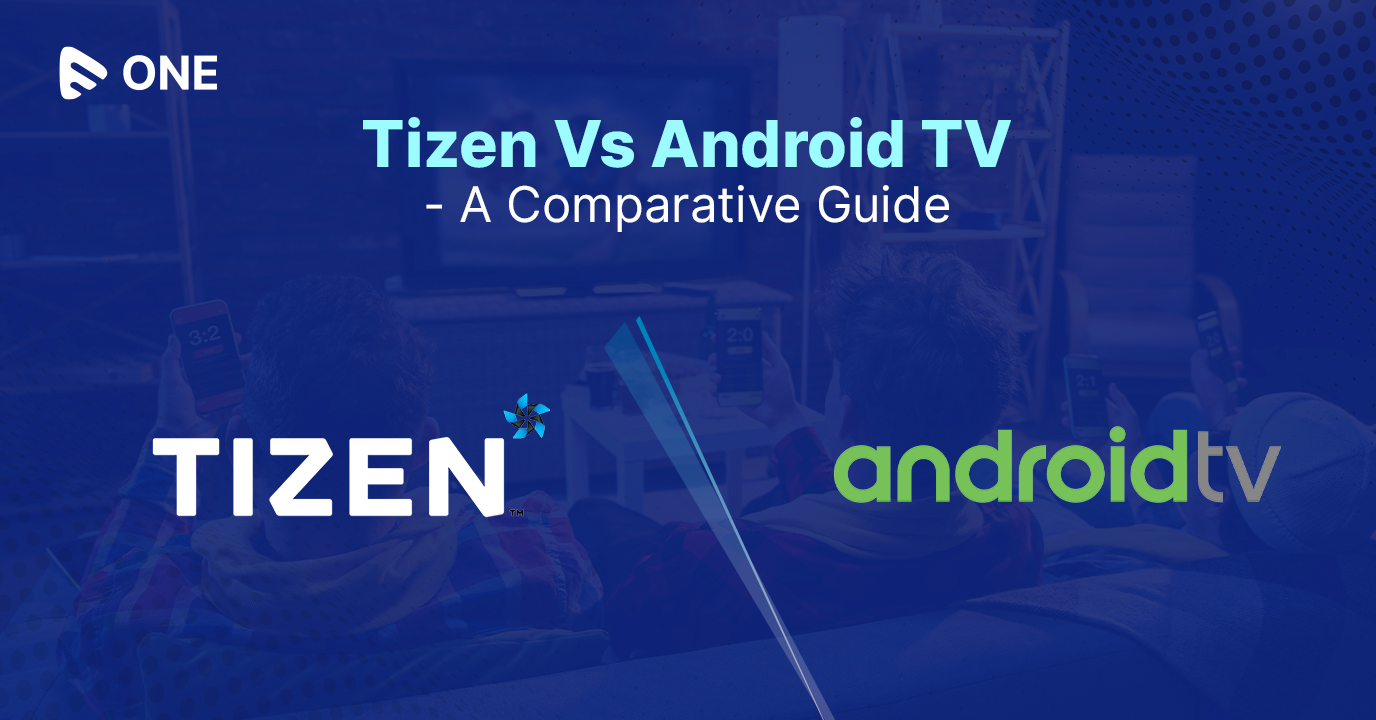



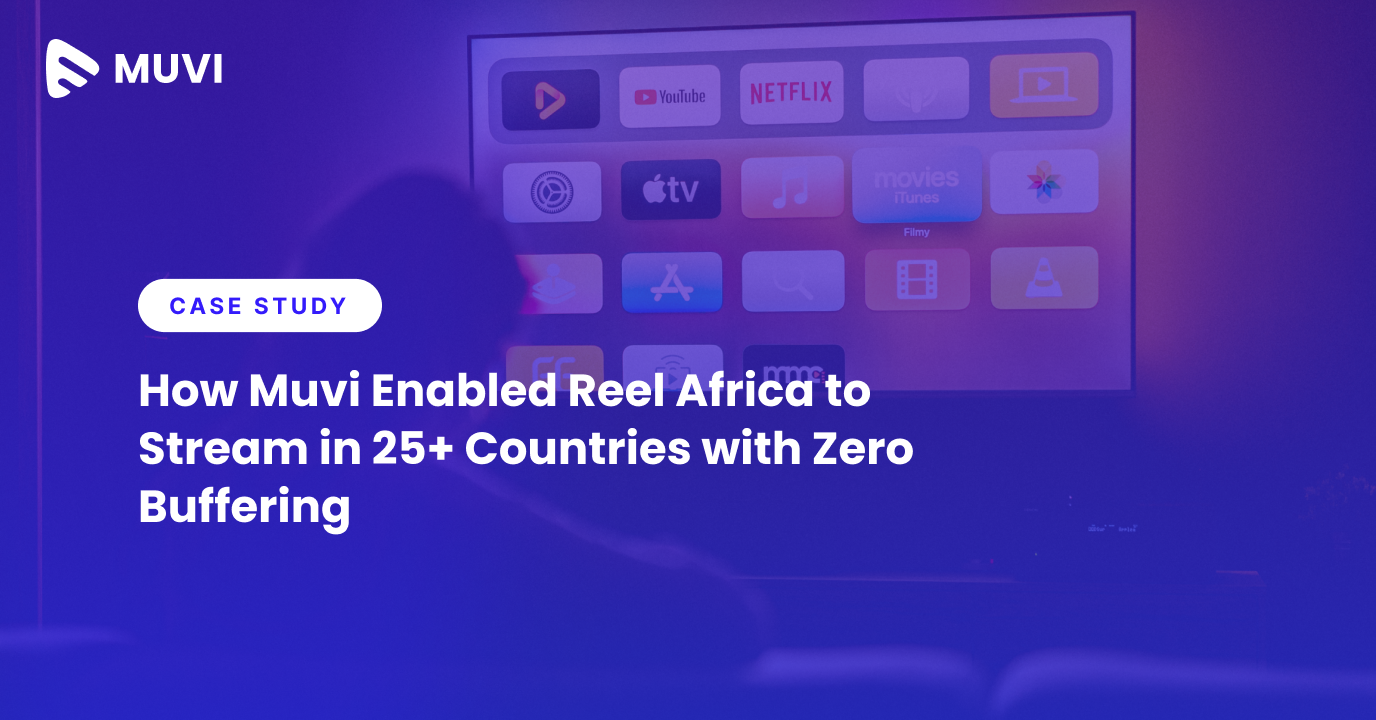

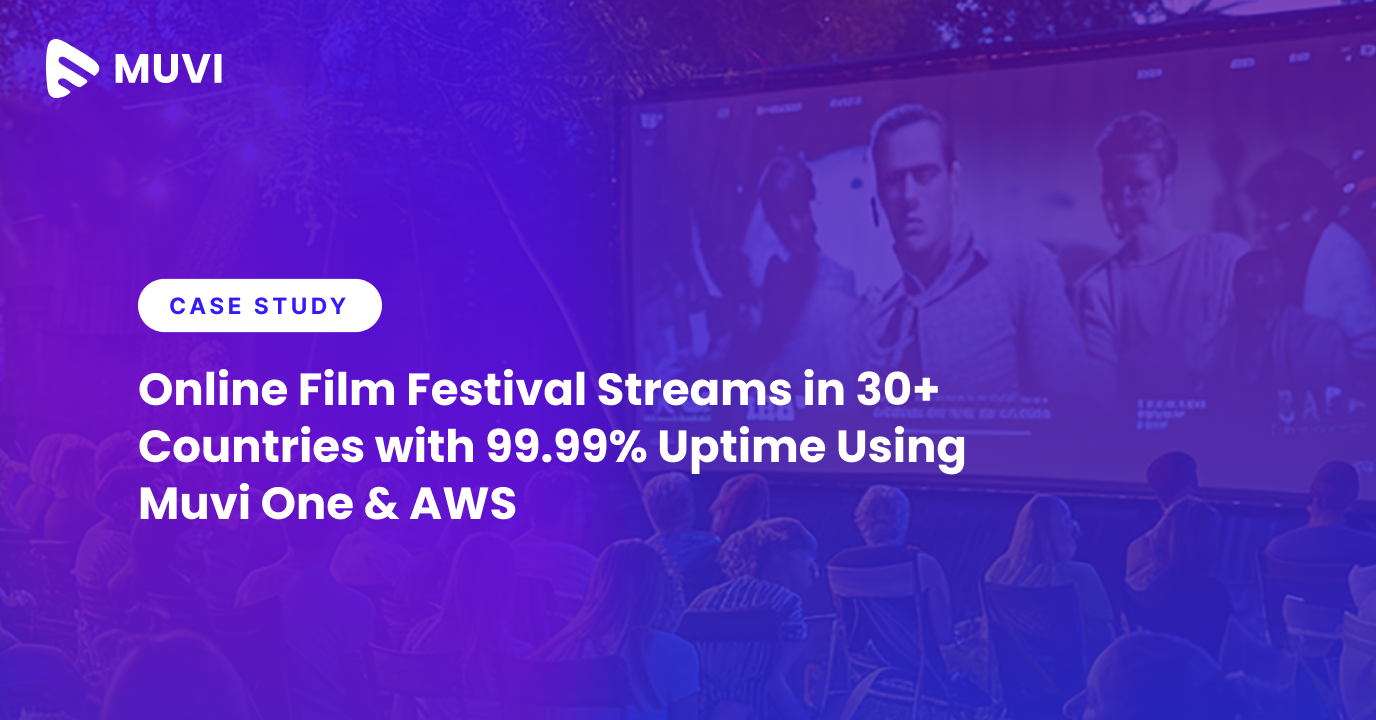




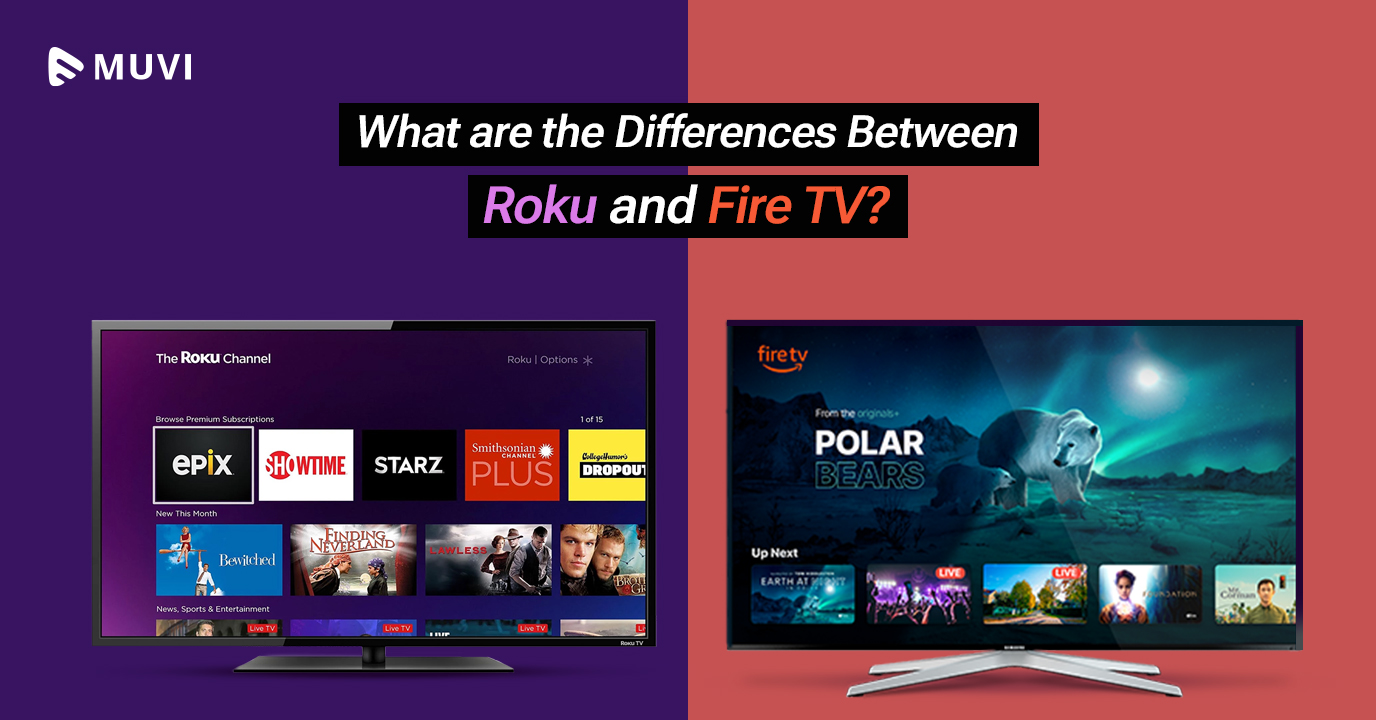
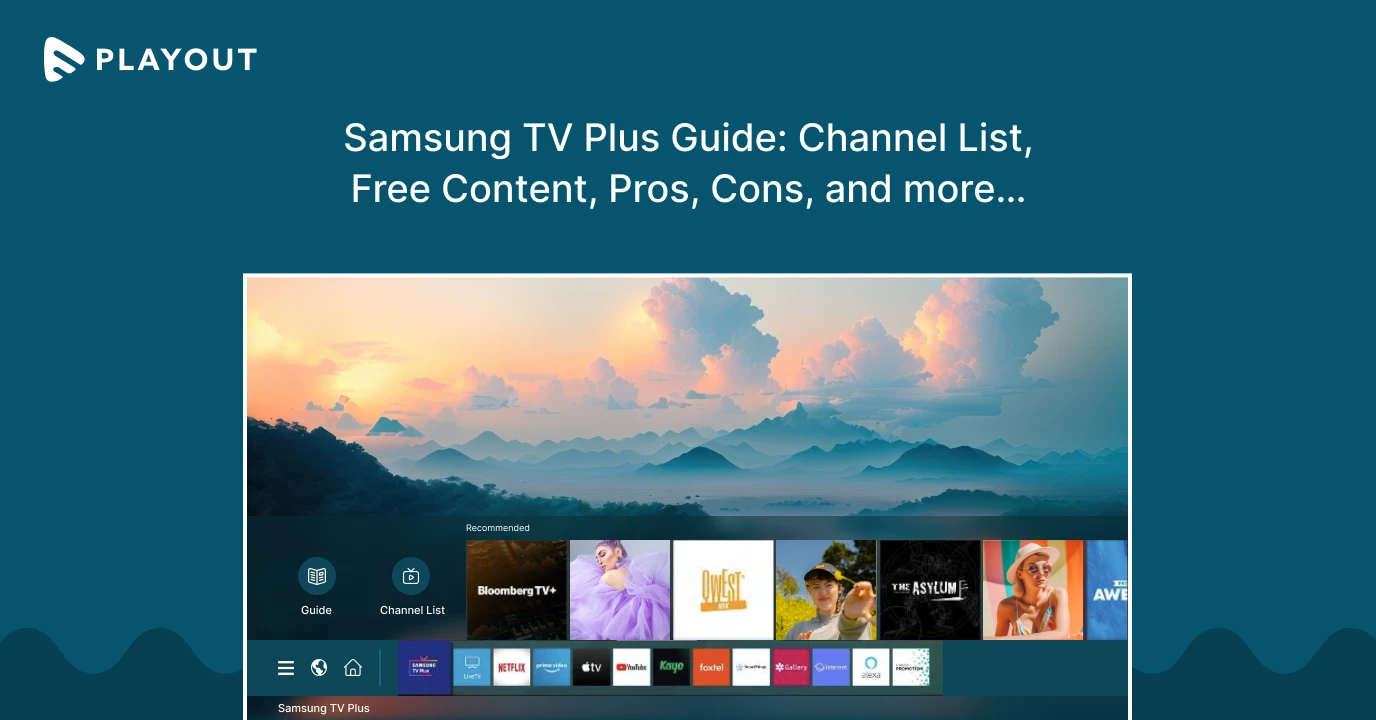
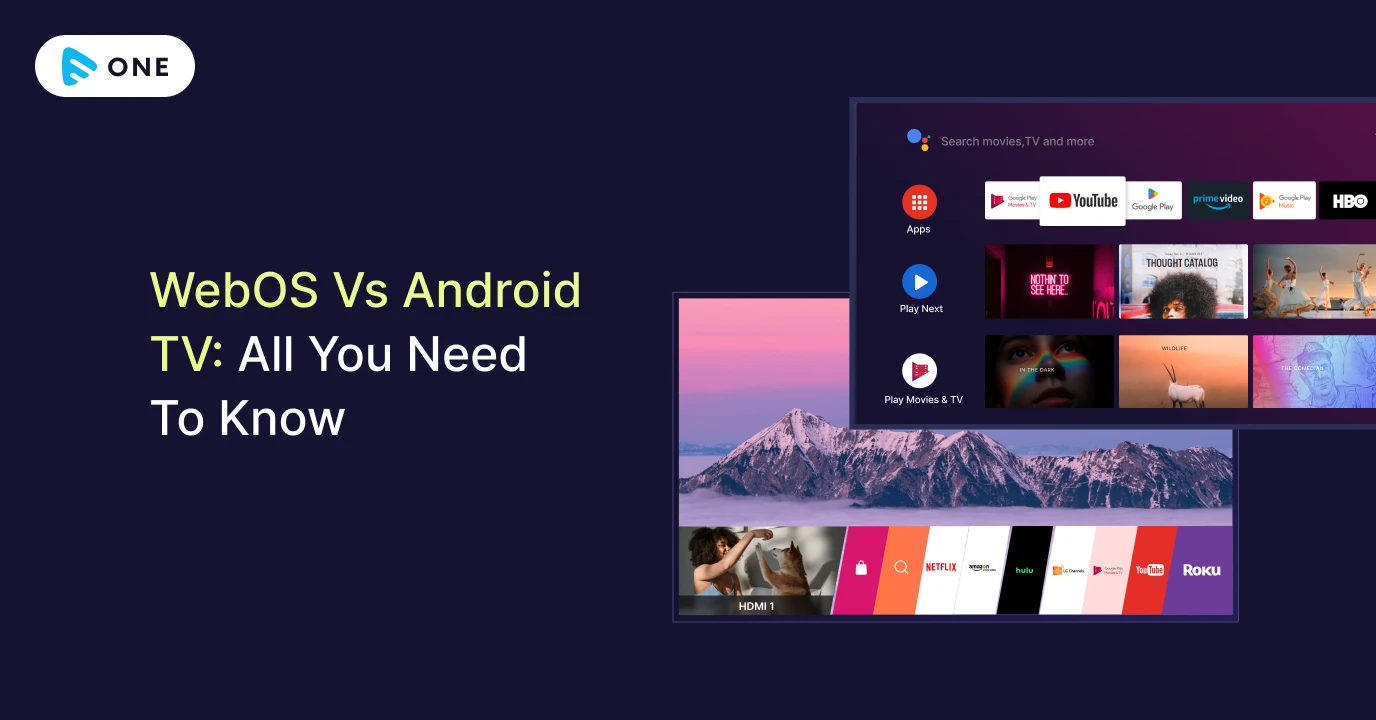



Add your comment